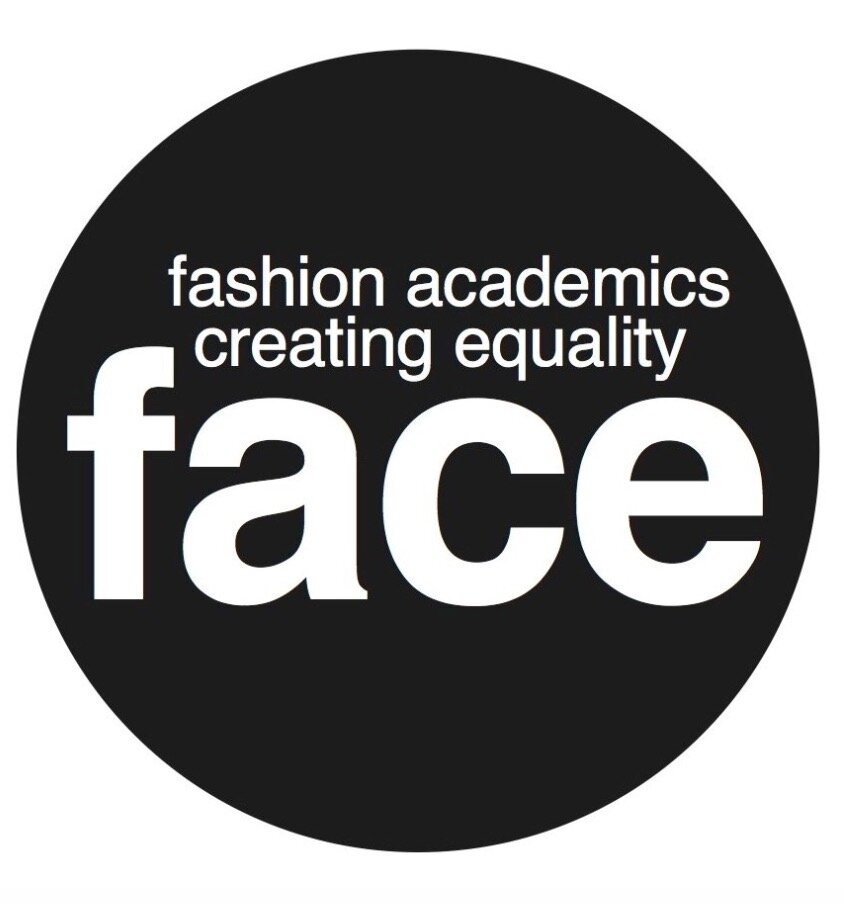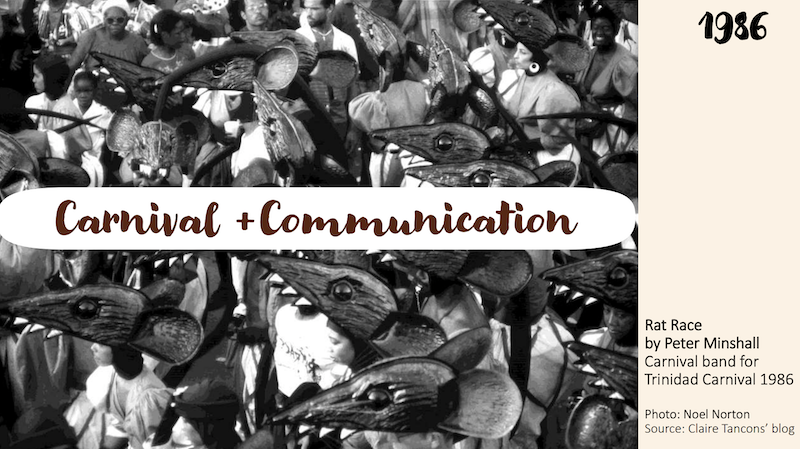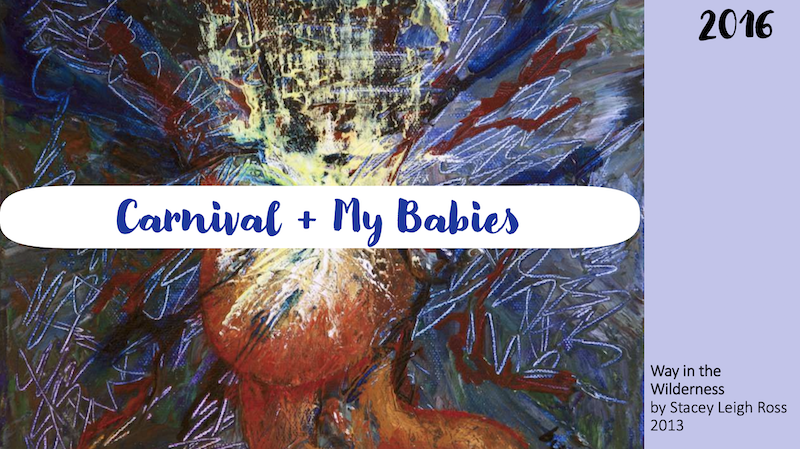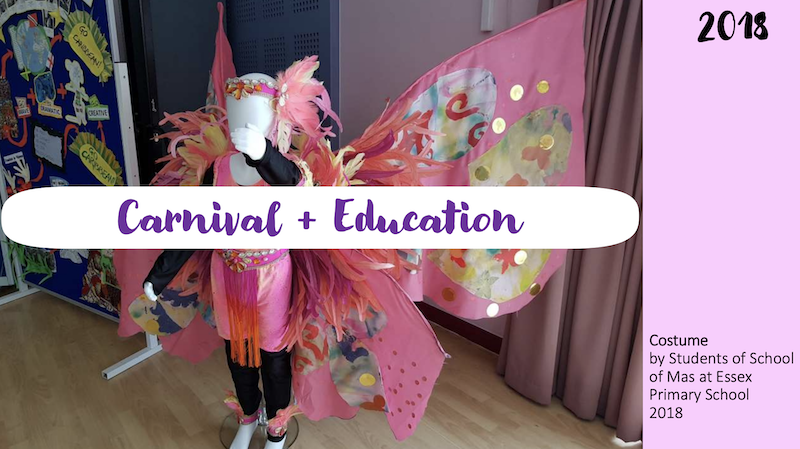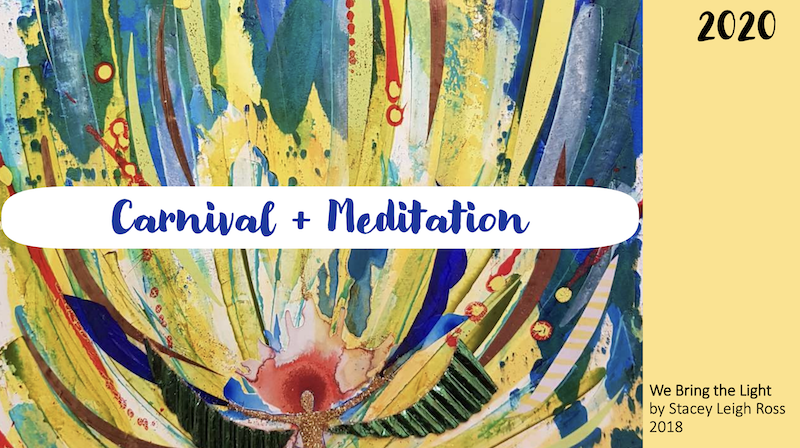Could Carnival Save the World?
Could Carnival save the world, asks Stacey Leigh Ross? The latest speaker to join us for our community talks, Stacey shares a moving account of how her creative practice led her home to Carnival, and how Carnival led her to envision a better world for her babies. Report by Caryn Franklin.
Ross has published articles and spoken at conferences about Carnival, inclusive teaching, and social change curation. Her largest community project is currently her practice-based PhD - Carnival of Compassion - an interactive, socially-engaged, multi-disciplinary, collaborative experience that uses Caribbean Carnival culture and storytelling to inspire acts of compassion through joyful resistance.
“I want to start,” say’s Ross, “by saying I recognise there are other carnivals born of Black culture but I chose to be specific. I focused on Caribbean Carnivals, specifically Trinidad and Tobago Carnival because that's where I'm from and that's what I know the most.”
“So, I was 9 and awestruck. It was 1986 and the adults around me were dressed in massive rat heads. Peter Minshall’s Rat Race with all of the bureaucrat’s and technocrats dancing as if behind a Pied Piper, was the first time I realised that art could hold up a mirror or ask questions.”
Image from Claire Tancons' blog post.
Fast forward to a time when “I was about to give up on my art business and get a ‘real’ job when I was invited to show my work at the Oval in London at Carnival Expo. I saw Caribbean people – my people with crazy hairstyles and loud laughter. They were unapologetic in their loudness and their joy. I was taken with the contrast. I used to be like that, I thought. What happened to me? That was a moment of reawakening and needless to say, I got my hair dyed the next week.”
I saw Caribbean people – my people with crazy hairstyles loud laughter. They were unapologetic in their loudness and their joy.
Remaining buoyant in the face global events is a challenge for most of us and Ross would find herself sobbing on the kitchen floor. “Three men had been killed by police in the USA in three days. I kept hearing All Lives Matter but listening to the news... about those men, about the increased hate crimes in the UK due to Brexit, as well as learning about the girls and women in Trinidad disappearing then turning up raped and or dead... it became extremely clear to me that all lives did not indeed matter.”
“Apparently only some lives mattered. I was sobbing because I finally gave up the post-colonial colour-blindness and saw all the injustice for what it was - immigrants didn't matter, women didn't matter, Black people didn't matter, and that list is not exhaustive. It absolutely terrified me that this is what I'd brought two little mixed race babies into. I knew I had to do something!”
“I found myself taking stock. I asked myself what can I contribute to making this a better, safer world for my babies? Some Lives Matter. This seemed like my answer at the time,” continues Ross. “Using my Life Story Art skills to represent the experiences of marginalised people, I wanted to deep dive in the world of others to expose their reality.”
“But Some Lives Matter confused me because I had done my first solo exhibition so easily before, yet I just could not get moving with this project. Four years later, I figured it out, Some Lives Matter couldn't happen because it was focused on the pain and I am, by nature, all about creating joy. I would have needed a decade of therapy between each artwork. So I had to flip it, and Carnival helped me do that - find a way to create joy in the face of pain. Bringing joy brings me joy! “Carnival reawakened me,” she laughs.
Bringing joy brings me joy!
Throughout her talk Stacey will reference numerous people who have championed her, these connections help her to stay optimistic in the face of uncertainty. But, after three years at Carnival Expo there is a lull once more. And money is tight. Another person will reach out to connect Stacey with a head teacher looking for a Caribbean arts educator to inspire students of Caribbean heritage. She would be hired to do a 10 week Caribbean arts project to build aspirations for her British Caribbean students ages 8-11. This would be a special opportunity to show the students the importance of their heritage to their creativity. Coupled with this, would be the flow of money at last. Thank goodness for Carnival, it saved her once again.
Now in 2020 the Some Lives Matter exhibition is stalled. “We are in the middle of a pandemic and nobody is hiring. I wanted to pull people in to investigate what we could create together if we were compassionate to each other. If we were loving to each other. If we were seeking joy. This would become my Carnival of Compassion. Within a month I had tons of information. And the research kept growing along with the ideas.”
“So now that the research is underway and I’m asking myself if Carnival saved me, how could carnival save us all? Stacey continues, “Essentially how do I combine Caribbean culture, storytelling, and multi disciplinary art to inspire acts of compassion through joyful resistance? Both carnival and compassion have something in common in that, they are reactions to distress. As many will know there is a moment when you are in the music, in the zone, in your costume, moving dancing and you feel so happy and you so want the people watching to be happy with you. It’s euphoric joy and oneness. My question to myself was can I recreate that outside of an actual Caribbean Carnival? Can I link it to compassion in the minds of my audience so that when they want to feel that joyful again, they think ‘I know, I’ll be compassionate’, then actively seek out opportunities to be compassionate?”
Both carnival and compassion have something in common in that, they are reactions to distress
“I don’t know the answers yet, but this is what the research is exploring. I do know,” says Stacey, “that one route to joy is compassion. I also know that this is a resistance project. I am resisting social injustice and marginalisation with this project. I’m resisting the lack of connection and engagement, the numbness, and the powerlessness that we experience in our current society.”
Stacey envisions the outcome of the research being an event, an exhibition, also an experience, a workshop, a participatory art party. In short… a festival in its own right. The research will guide her, along with collected stories of compassion from the intersections of marginalised groups. How have they experienced people being compassionate to them. “I’ll collaborate primarily with artists of Caribbean heritage across different disciplines to tie all this together for the audience. I want to take them on a journey that builds up to that euphoric oneness moment,” says Stacey. “Caribbean Carnival is a festival of connection, creativity, collaboration, communication and of deliberately choosing joy in the face of life’s stresses. It’s also about release and rejuvenation. Carnival is our mental health inheritance. What do a whole load of previously enslaved, newly freed people do when there is no system to help them deal with all their post-traumatic stress?” she asks. “They invent their own way of coping.”
These are festivals of connection, creativity, collaboration, communication and of deliberately choosing joy in the face of life’s stresses. It’s also about release and rejuvenation. This carnival is our mental health inheritance.
“If I can manage this journey for my audience then hopefully I can get them to realise they don’t need permission, money or power in order to be compassionate. It can be done in the moment the minute we see distress we can respond with compassion.”
“This is about feeling empowered and let’s flip the script again. We don’t need government to sign off this community therapy in the budget. This is a groundswell where we can do this ourselves. We can decide to be more compassionate and that’s what I’m hoping Carnival of Compassion will do.”
Can I turn my audience into joy junkies creating joy and compassion for themselves and everybody else around them?
Stacey is thoughtful. “I’m asking myself questions. Is compassion the route to joy? Can I turn my audience into joy junkies creating joy and compassion for themselves and everybody else around them? Does Caribbean culture have the power to shift the energy here in the global north? And just as importantly how does the global south benefit? Can I show the world that so-called developing nations have the answer that will save us all?”
“Can I distil that knowledge to economically empower the nations that I am taking my knowledge from? My PhD requires that I ask a lot of questions of myself and my research, and of course I’m asking myself what my next step is after this? Maybe Carnival has that answer too.” But can Carnival save the world? Stacey Leigh Ross absolutely thinks it can.
